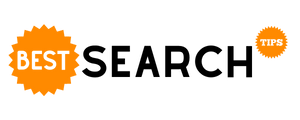A job description lists the requirements and responsibilities that recruiters expect employees to fulfill. By understanding how to read a job description, you will be better able to determine whether or not the job is ideal for you. And if it is the right fit, you can further tailor your CV to fit the role and land your dream job position.
What Difference does Reading Description Make?
Mostly we are so focused on the title of the position and what the position pays that we neglect the information pertaining to the job. Reading the description thoroughly will give you a comprehensive picture of the company and help you evaluate the following things;
- What are the company’s values and vision?
- Who is the CEO/ founder of the company?
- Evolution/ history of the company.
- What bonuses or packages you should be expecting?
- Whether or not you could adapt to the company’s environment?
Analyzing Parts of Description
It is usually human resources staff members or the joint effort of groups of hiring managers who write these descriptions and compile them into job specifications under different headings. It is important to remember that they are not depicting a specific type of person but qualities, skills, and the commitment to fill the position.
Each job posting is unique. Some expositions are short, while others are more detailed. Also, it is not necessary for every job advertisement to have the same label. It is you who should be able to mindfully read the post and figure out which sections refer to what requirements.
Job Title
- The title consists of just a few words (ranging from 1 to 5) to indicate the job position and scope.
Job Purpose
- This section outlines an overview of your duties and role at the company.
- All the tasks you’ll find here are the ones you’ll be expected to carry out, and projects you will work on a daily basis.
This portion is critically important if you intend to apply for this position or still exploring what roles may interest you. Usually, they are in the form of bullet points. As you read them, ask yourself if these are activities you want to do on a regular basis.
Specific Requirements
- Many recruiters will write their requirements as having two or more years of experience.
- Further, they can mention their experience in a particular field.
These are only soft requirements. When students are applying for jobs, they believe that if they don’t check every single box, they shouldn’t apply. However, if your skills and interests match the requirements criteria, this is something that is commonly overlooked.
Role Description Or Responsibilities

- In this section, you will learn what your job will entail.
- What the employee will be doing? Who he/she will be communicating with, reporting to, and how much interaction with others he/she will have inside and outside of the company.
- They frequently mention buzzwords such as “group work”, “creative work”, or “independent work” to ensure only the right candidates apply. Hence pay attention to every minute detail.
Having these details, lets you compare which roles they are looking for and what you have done in a similar capacity. It’s a good idea to apply if the roles and responsibilities they are looking for are something that aligns with you. Moreover, you should tailor your cover letter or resume according to this section.
Qualification and Skills
- This next section is qualification and skills. In general, you should have 80% of the skills listed in the criteria. But don’t stress over it, if you have even more than 50% of the skills and you are confident that you are able to acquire the rest of them, you should apply. For example, if they require skills like JobVite, which is a recruiting tool, you can still learn about JobVite even if you have never used it before. Read about it, or it is best that you watch video lessons on Youtube.
Wherever it comes naturally, include these essential skills on your resume and cover letter.
Benefits of Carefully Reading Job Description
- By diligently going over the job description you can get a sense of what questions they will ask you during the interview, so you can prepare your topics accordingly.
- It will tell you if the job is full-time or part-time, as well as what position it is.
- Simply looking at the title of a job can lead you to assume it is something else. Perhaps after reading the description, you find it isn’t something that appeals to you. Or on the contrary, maybe it will make you more interested in the job.












